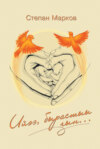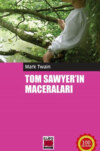Kitabı oku: «Complete Letters of Mark Twain», sayfa 35
But he was by this time more certain than ever that his discovery was a remarkable one, which, if known, would become one of the great natural wonders, such as Niagara Falls. Theodore Stanton was visiting him at the time, and Clemens urged him, on his return to France, to make an excursion to the Rhone and locate the Lost Napoleon, as he now called it. But Clemens remembered the wonder as being somewhere between Arles and Avignon, instead of about a hundred miles above the last-named town. Stanton naturally failed to find it, and it remained for the writer of these notes, motoring up the Rhone one September day, exactly twenty-two years after the first discovery, to re-locate the vast reclining figure of the first consul of France, “dreaming of Universal Empire.” The re-discovery was not difficult – with Mark Twain’s memoranda as a guide – and it was worth while. Perhaps the Lost Napoleon is not so important a natural wonder as Mark Twain believed, but it is a striking picture, and on a clear day the calm blue face outlined against the sky will long hold the traveler’s attention.
*****
To Clara Clemens, in Ouchy, Switzerland:
Afloat, 11.20 a.m., Sept. 29, Tuesday.
Dear old Ben, – The vast stone masses and huge towers of the ancient papal palace of Avignon are projected above an intervening wooded island a mile up the river behind me – for we are already on our way to Arles. It is a perfectly still morning, with a brilliant sun, and very hot – outside; but I am under cover of the linen hood, and it is cool and shady in here.
Please tell mamma I got her very last letter this morning, and I perceive by it that I do not need to arrive at Ouchy before Saturday midnight. I am glad, because I couldn’t do the railroading I am proposing to do during the next two or three days and get there earlier. I could put in the time till Sunday midnight, but shall not venture it without telegraphic instructions from her to Nîmes day after tomorrow, Oct. 1, care Hotel Manivet.
The only adventures we have is in drifting into rough seas now and then. They are not dangerous, but they go thro’ all the motions of it. Yesterday when we shot the Bridge of the Holy Spirit it was probably in charge of some inexperienced deputy spirit for the day, for we were allowed to go through the wrong arch, which brought us into a tourbillon below which tried to make this old scow stand on its head. Of course I lost my temper and blew it off in a way to be heard above the roar of the tossing waters. I lost it because the admiral had taken that arch in deference to my opinion that it was the best one, while his own judgment told him to take the one nearest the other side of the river. I could have poisoned him I was so mad to think I had hired such a turnip. A boatman in command should obey nobody’s orders but his own, and yield to nobody’s suggestions.
It was very sweet of you to write me, dear, and I thank you ever so much. With greatest love and kisses,
Papa.
*****
To Mrs. Clemens, in Ouchy, Switzerland:
Arles, Sept. 30, noon.
Livy darling, I hain’t got no time to write today, because I am sight seeing industriously and imagining my chapter.
Bade good-bye to the river trip and gave away the boat yesterday evening. We had ten great days in her.
We reached here after dark. We were due about 4.30, counting by distance, but we couldn’t calculate on such a lifeless current as we found.
I love you, sweetheart.
Saml.
It had been a long time since Clemens had written to his old friend Twichell, but the Rhone trip must have reminded him of those days thirteen years earlier, when, comparatively young men, he and Twichell were tramping through the Black Forest and scaling Gemmi Pass. He sent Twichell a reminder of that happy time.
*****
To Rev. Joseph H. Twichell, in Hartford, Conn:
Nîmes, Oct. 1, ’91.
Dear Joe, – I have been ten days floating down the Rhone on a raft, from Lake Bourget, and a most curious and darling kind of a trip it has been. You ought to have been along – I could have made room for you easily – and you would have found that a pedestrian tour in Europe doesn’t begin with a raft-voyage for hilarity and mild adventure, and intimate contact with the unvisited native of the back settlements, and extinction from the world and newspapers, and a conscience in a state of coma, and lazy comfort, and solid happiness. In fact there’s nothing that’s so lovely.
But it’s all over. I gave the raft away yesterday at Arles, and am loafing along back by short stages on the rail to Ouchy-Lausanne where the tribe are staying.
Love to you all,
Mark.
The Clemenses settled in Berlin for the winter, at 7 Kornerstrasse, and later at the Hotel Royal. There had been no permanent improvement in Mark Twain’s arm and he found writing difficult. Some of the letters promised to Laffan and McClure were still unfinished.
Young Hall, his publishing manager in America, was working hard to keep the business afloat, and being full of the optimism of his years did not fail to make as good a showing as he could. We may believe his letters were very welcome to Clemens and his wife, who found little enough in the general prospect to comfort them.
*****
To Mr. Hall, in New York:
Berlin, Nov. 27, ’91.
Dear Mr. Hall, – That kind of a statement is valuable. It came this morning. This is the first time since the business began that I have had a report that furnished the kind of information I wanted, and was really enlightening and satisfactory. Keep it up. Don’t let it fall into desuetude.
Everything looks so fine and handsome with the business, now, that I feel a great let-up from depression. The rewards of your long and patient industry are on their way, and their arrival safe in port, presently, seems assured.
By George, I shall be glad when the ship comes in!
My arm is so much better that I was able to make a speech last night to 250 Americans. But when they threw my portrait on the screen it was a sorrowful reminder, for it was from a negative of 15 years ago, and hadn’t a gray hair in it. And now that my arm is better, I have stolen a couple of days and finished up a couple of McClure letters that have been lying a long time.
I shall mail one of them to you next Tuesday – registered. Lookout for it.
I shall register and mail the other one (concerning the “Jungfrau”) next Friday look out for it also, and drop me a line to let me know they have arrived.
I shall write the 6th and last letter by and by when I have studied Berlin sufficiently.
Yours in a most cheerful frame of mind, and with my and all the family’s Thanksgiving greetings and best wishes,
S. L. Clemens.
Postscript by Mrs. Clemens written on Mr. Clemens’s letter:
Dear Mr. Hall, – This is my birthday and your letter this morning was a happy addition to the little gifts on the breakfast table. I thought of going out and spending money for something unnecessary after it came, but concluded perhaps I better wait a little longer.
Sincerely yours,
O. L. Clemens.
“The German Chicago” was the last of the six McClure letters and was finished that winter in Berlin. It is now included in the Uniform Edition of Mark Twain’s works, and is one of the best descriptive articles of the German capital ever written. He made no use of the Rhone notes further than to put them together in literary form. They did not seem to him to contain enough substance to warrant publication. A letter to Hall, written toward the end of December, we find rather gloomy in tone, though he is still able to extract comfort and even cheerfulness from one of Mr. Hall’s reports.
Memorandum to Fred J. Hall, in New York:
Among the mss I left with you are a few that have a recent look and are written on rather stiff pale green paper. If you will have those type-writered and keep the originals and send me the copies (one per mail, not two.) I’ll see if I can use them.
But tell Howells and other inquirers that my hopes of writing anything are very slender – I seem to be disabled for life.
Drop McClure a line and tell him the same. I can’t dare to make an engagement now for even a single letter.
I am glad Howells is on a magazine, but sorry he gave up the Study. I shall have to go on a magazine myself if this L. A. L. continues to hold my nose down to the grind-stone much longer.
I’m going to hold my breath, now, for 30 days – then the annual statement will arrive and I shall know how we feel! Merry Xmas to you from us all.
Sincerely,
S. L. C.
P. S. Just finished the above and finished raging at the eternal German tax-gatherer, and so all the jubilant things which I was going to say about the past year’s business got knocked out of me. After writing this present letter I was feeling blue about Huck Finn, but I sat down and overhauled your reports from now back to last April and compared them with the splendid Oct.-Nov. business, and went to bed feeling refreshed and fine, for certainly it has been a handsome year. Now rush me along the Annual Report and let’s see how we feel!
S. L. C.
XXXII. Letters, 1892, Chiefly To Mr. Hall And Mrs. Crane. In Berlin, Mentone, Bad-Nauheim, Florence
Mark Twain was the notable literary figure in Berlin that winter, the center of every great gathering. He was entertained by the Kaiser, and shown many special attentions by Germans of every rank. His books were as well known in Berlin as in New York, and at court assemblies and embassies he was always a chief center of interest.
He was too popular for his own good; the gaiety of the capital told on him. Finally, one night, after delivering a lecture in a hot room, he contracted a severe cold, driving to a ball at General von Versen’s, and a few days later was confined to his bed with pneumonia. It was not a severe attack, but it was long continued. He could write some letters and even work a little, but he was not allowed to leave his bed for many weeks, a condition which he did not find a hardship, for no man ever enjoyed the loose luxury of undress and the comfort of pillows more than Mark Twain. In a memorandum of that time he wrote: “I am having a booming time all to myself.”
Meantime, Hall, in America, was sending favorable reports of the publishing business, and this naturally helped to keep up his spirits. He wrote frequently to Hall, of course, but the letters for the most part are purely of a business nature and of little interest to the general reader.
*****
To Fred J. Hall, in New York:
Hotel royal, Berlin, Feb. 12.
Dear Mr. Hall, – Daly wants to get the stage rights of the “American Claimant.” The foundation from which I wrote the story is a play of the same name which has been in A. P. Burbank’s hands 5 or 6 years. That play cost me some money (helping Burbank stage it) but has never brought me any. I have written Burbank (Lotos Club) and asked him to give me back his rights in the old play so that I can treat with Daly and utilize this chance to even myself up. Burbank is a lovely fellow, and if he objects I can’t urge him. But you run in at the Lotos and see him; and if he relinquishes his claim, then I would like you to conduct the business with Daly; or have Whitford or some other lawyer do it under your supervision if you prefer.
This morning I seem to have rheumatism in my right foot.
I am ordered south by the doctor and shall expect to be well enough to start by the end of this month.
(No signature.)
It is curious, after Clemens and Howells had tried so hard and so long to place their “Sellers” Play, that now, when the story appeared in book form, Augustin Daly should have thought it worth dramatizing. Daly and Clemens were old friends, and it would seem that Daly could hardly have escaped seeing the play when it was going the rounds. But perhaps there is nothing more mysterious in the world than the ways and wants of theatrical managers. The matter came to nothing, of course, but the fact that Daly should have thought a story built from an old discarded play had a play in it seems interesting.
Clemens and his wife were advised to leave the cold of Berlin as soon as he was able to travel. This was not until the first of March, when, taking their old courier, Joseph Very, they left the children in good hands and journeyed to the south of France.
*****
To Susy Clemens, in Berlin:
Mentone, Mch 22, ’92.
Susy dear, – I have been delighted to note your easy facility with your pen and proud to note also your literary superiorities of one kind and another – clearness of statement, directness, felicity of expression, photographic ability in setting forth an incident – style – good style – no barnacles on it in the way of unnecessary, retarding words (the Shipman scrapes off the barnacles when he wants his racer to go her best gait and straight to the buoy.) You should write a letter every day, long or short – and so ought I, but I don’t.
Mamma says, tell Clara yes, she will have to write a note if the fan comes back mended.
We couldn’t go to Nice to-day – had to give it up, on various accounts – and this was the last chance. I am sorry for Mamma – I wish she could have gone. She got a heavy fall yesterday evening and was pretty stiff and lame this morning, but is working it off trunk packing.
Joseph is gone to Nice to educate himself in Kodaking – and to get the pictures mounted which Mamma thinks she took here; but I noticed she didn’t take the plug out, as a rule. When she did, she took nine pictures on top of each other – composites.
With lots of love.
Papa.
In the course of their Italian wanderings they reached Florence, where they were so comfortable and well that they decided to engage a villa for the next winter. Through Prof. Willard Fiske, they discovered the Villa Viviani, near Settignano, an old palace beautifully located on the hilltops east of Florence, commanding a wonderful view of the ancient city. Clemens felt that he could work there, and time proved that he was right.
For the summer, however, they returned to Germany, and located at Bad-Nauheim. Clemens presently decided to make a trip to America to give some personal attention to business matters. For one thing, his publishing-house, in spite of prosperity, seemed constantly to be requiring more capital, and then a Chicago company had been persuaded by Paige to undertake the manufacture of the type-setter. It was the beginning of a series of feverish trips which he would make back and forth across the ocean during the next two years.
*****
To Fred J. Hall, in New York:
Bad-Nauheim, June 11, ’92.
Saturday.
Dear Mr. Hall, – If this arrives before I do, let it inform you that I am leaving Bremen for New York next Tuesday in the “Havel.”
If you can meet me when the ship arrives, you can help me to get away from the reporters; and maybe you can take me to your own or some other lodgings where they can’t find me.
But if the hour is too early or too late for you, I shall obscure myself somewhere till I can come to the office.
Yours sincerely S. L. C.
Nothing of importance happened in America. The new Paige company had a factory started in Chicago and expected to manufacture fifty machines as a beginning. They claimed to have capital, or to be able to command it, and as the main control had passed from Clemens’s hands, he could do no more than look over the ground and hope for the best. As for the business, about all that he could do was to sign certain notes necessary to provide such additional capital as was needed, and agree with Hall that hereafter they would concentrate their efforts and resist further temptation in the way of new enterprise. Then he returned to Bad-Nauheim and settled down to literature. This was the middle of July, and he must have worked pretty steadily, for he presently had a variety of Mss. ready to offer.
*****
To Fred J. Hall, in New York:
Aug. 10, ’92.
Dear Mr. Hall, – I have dropped that novel I wrote you about, because I saw a more effective way of using the main episode – to wit: by telling it through the lips of Huck Finn. So I have started Huck Finn and Tom Sawyer (still 15 years old) and their friend the freed slave Jim around the world in a stray balloon, with Huck as narrator, and somewhere after the end of that great voyage he will work in the said episode and then nobody will suspect that a whole book has been written and the globe circumnavigated merely to get that episode in an effective (and at the same time apparently unintentional) way. I have written 12,000 words of this narrative, and find that the humor flows as easily as the adventures and surprises – so I shall go along and make a book of from 50,000 to 100,000 words.
It is a story for boys, of course, and I think will interest any boy between 8 years and 80.
When I was in New York the other day Mrs. Dodge, editor of St. Nicholas, wrote and, offered me $5,000 for (serial right) a story for boys 50,000 words long. I wrote back and declined, for I had other matter in my mind, then.
I conceive that the right way to write a story for boys is to write so that it will not only interest boys but will also strongly interest any man who has ever been a boy. That immensely enlarges the audience.
Now this story doesn’t need to be restricted to a Childs magazine – it is proper enough for any magazine, I should think, or for a syndicate. I don’t swear it, but I think so.
Proposed title of the story, “New Adventures of Huckleberry Finn.”
(No signature.)
The “novel” mentioned in the foregoing was The Extraordinary Twins, a story from which Pudd’nhead Wilson would be evolved later. It was a wildly extravagant farce – just the sort of thing that now and then Mark Twain plunged into with an enthusiasm that had to work itself out and die a natural death, or mellow into something worth while. Tom Sawyer Abroad, as the new Huck story was finally called, was completed and disposed of to St. Nicholas for serial publication.
The Twichells were in Europe that summer, and came to Bad-Nauheim. The next letter records a pleasant incident. The Prince of Wales of that day later became King Edward VII.
*****
To Mr. and Mrs. Orion Clemens, in Keokuk, Iowa.:
Private. Bad-Nauheim, Aug. 23, ’92.
Dear Orion and Mollie, – ("Private” because no newspaper-man or other gossip must get hold of it)
Livy is getting along pretty well, and the doctor thinks another summer here will cure her.
The Twichell’s have been here four days and we have had good times with them. Joe and I ran over to Homburg, the great pleasure resort, Saturday, to dine with some friends, and in the morning I went walking in the promenade and met the British Ambassador to the Court of Berlin, and he introduced me to the Prince of Wales, and I found him a most unusually comfortable and unembarrassing Englishman to talk with – quick to see the obscurest point, and equipped with a laugh which is spontaneous and catching. Am invited by a near friend of his to meet him at dinner day after tomorrow, and there could be a good time, but the brass band will smash the talk and spoil everything.
We are expecting to move to Florence ten or twelve days hence, but if this hot weather continues we shall wait for cooler. I take Clara to Berlin for the winter-music, mainly, with German and French added. Thus far, Jean is our only glib French scholar.
We all send love to you all and to Pamela and Sam’s family, and Annie.
Sam.
Clemens and family left Bad-Nauheim for Italy by way of Switzerland. In September Mrs. Clemens’s sister, Mrs. Crane, who had been with them in Europe during the first year, had now returned to America. Mrs. Clemens had improved at the baths, though she had by no means recovered her health. We get a general report of conditions from the letter which Clemens wrote Mrs. Crane from Lucerne, Switzerland, where the party rested for several days. The “Phelps” mentioned in this letter was William Walter Phelps, United States Minister to Germany. The Phelps and Clemens families had been much associated in Berlin. “Mason” was Frank Mason, Consul General at Frankfort, and in later years at Paris. “Charlie and Ida” were Charles and Mrs. Langdon, of Elmira.
*****
To Mrs. Crane, in Elmira, N. Y.:
Lucerne, Sept. 18, ’92.
Dear aunt sue, – Imagine how I felt to find that you had actually gone off without filling my traveling ink stand which you gave me! I found it out yesterday. Livy advised me to write you about it.
I have been driving this pen hard. I wrote 280 pages on a yarn called “Tom Sawyer Abroad,” then took up the “Twins” again, destroyed the last half of the manuscript and re-wrote it in another form, and am going to continue it and finish it in Florence. “Tom Sawyer” seems rather pale to the family after the extravagances of the Twins, but they came to like it after they got used to it.
We remained in Nauheim a little too long. If we had left there four or five days earlier we should have made Florence in 3 days; but by the time we got started Livy had got smitten with what we feared might be erysipelas – greatly swollen neck and face, and unceasing headaches. We lay idle in Frankfort 4 days, doctoring. We started Thursday and made Bale. Hard trip, because it was one of those trains that gets tired every seven minutes and stops to rest three quarters of an hour. It took us 3 1/2 hours to get here, instead of the regulation 2.20. We reached here Friday evening and will leave tomorrow (Tuesday) morning. The rest has made the headaches better. We shall pull through to Milan tomorrow if possible. Next day we shall start at 10 a. m., and try to make Bologna, 5 hours. Next day (Thursday) Florence, D. V. Next year we will walk, for these excursions have got to be made over again. I’ve got seven trunks, and I undertook to be courier because I meant to express them to Florence direct, but we were a couple of days too late. All continental roads had issued a peremptory order that no baggage should travel a mile except in the company of the owner. (All over Europe people are howling; they are separated from their baggage and can’t get it forwarded to them) I have to re-ship my trunks every day. It is very amusing – uncommonly so. There seemed grave doubts about our being able to get these trunks over the Italian frontier, but I’ve got a very handsome note from the Frankfort Italian Consul General addressed to all Italian Customs Officers, and we shall get through if anybody does.
The Phelpses came to Frankfort and we had some great times – dinner at his hotel, the Masons, supper at our inn – Livy not in it. She was merely allowed a glimpse, no more. Of course, Phelps said she was merely pretending to be ill; was never looking so well and fine.
The children are all right. They paddle around a little, and drive-so do we all. Lucerne seems to be pretty full of tourists. The Fleulen boat went out crowded yesterday morning.
The Paris Herald has created a public interest by inoculating one of its correspondents with cholera. A man said yesterday he wished to God they would inoculate all of them. Yes, the interest is quite general and strong, and much hope is felt.
Livy says, I have said enough bad things, and better send all our loves to you and Charley and Ida and all the children and shut up. Which I do – and shut up.
S. L. C.
They reached Florence on the 26th, and four days later we find Clemens writing again to Mrs. Crane, detailing everything at length. Little comment on this letter is required; it fully explains itself. Perhaps a word of description from one of his memoranda will not be out of place. Of the villa he wrote: “It is a plain, square building, like a box, and is painted light green and has green window-shutters. It stands in a commanding position on the artificial terrace of liberal dimensions, which is walled around with masonry. From the walls the vineyards and olive groves of the estate slant away toward the valley…. Roses overflow the retaining walls and the battered and mossy stone urn on the gate-post, in pink and yellow cataracts, exactly as they do on the drop-curtains in the theaters. The house is a very fortress for strength.”
The Mrs. Ross in this letter was Janet Ross, daughter of Lady Duff Gordon, remembered to-day for her Egyptian letters. The Ross castle was but a little distance away.
*****
To Mrs. Crane, in Elmira:
Villa Viviani, Settignano, Florence.
Sept. 30, 1892
Dear sue, – We have been in the house several days, and certainly it is a beautiful place, – particularly at this moment, when the skies are a deep leaden color, the domes of Florence dim in the drizzling rain, and occasional perpendicular coils of lightning quivering intensely in the black sky about Galileo’s Tower. It is a charming panorama, and the most conspicuous towers and domes down in the city look to-day just as they looked when Boccaccio and Dante used to contemplate them from this hillock five and six hundred years ago.
The Mademoiselle is a great help to Livy in the housekeeping, and is a cheery and cheerful presence in the house. The butler is equipped with a little French, and it is this fact that enables the house to go – but it won’t go well until the family get some sort of facility with the Italian tongue, for the cook, the woman-of-all-work and the coachman understand only that. It is a stubborn and devilish language to learn, but Jean and the others will master it. Livy’s German Nauheim girl is the worst off of anybody, as there is no Mark.t for her tongue at all among the help.
With the furniture in and the curtains up the house is very pretty, and not unhomelike. At mid-night last night we heard screams up stairs – Susy had set the lofty window curtains afire with a candle. This sounds kind of frightful, whereas when you come to think of it, a burning curtain or pile of furniture hasn’t any element of danger about it in this fortress. There isn’t any conceivable way to burn this house down, or enable a conflagration on one floor to climb to the next.
Mrs. Ross laid in our wood, wine and servants for us, and they are excellent. She had the house scoured from Cellar to rook the curtains washed and put up, all beds pulled to pieces, beaten, washed and put together again, and beguiled the Marchese into putting a big porcelain stove in the vast central hall. She is a wonderful woman, and we don’t quite see how or when we should have gotten under way without her.
Observe our address above – the post delivers letters daily at the house.
Even with the work and fuss of settling the house Livy has improved – and the best is yet to come. There is going to be absolute seclusion here – a hermit life, in fact. We (the rest of us) shall run over to the Ross’s frequently, and they will come here now and then and see Livy – that is all. Mr. Fiske is away – nobody knows where – and the work on his house has been stopped and his servants discharged. Therefore we shall merely go Rossing – as far as society is concerned – shan’t circulate in Florence until Livy shall be well enough to take a share in it.
This present house is modern. It is not much more than two centuries old; but parts of it, and also its foundations are of high antiquity. The fine beautiful family portraits – the great carved ones in the large ovals over the doors of the big hall – carry one well back into the past. One of them is dated 1305—he could have known Dante, you see. Another is dated 1343—he could have known Boccaccio and spent his afternoons in Fiesole listening to the Decameron tales. Another is dated 1463—he could have met Columbus…..
Evening. The storm thundered away until night, and the rain came down in floods. For awhile there was a partial break, which furnished about such a sunset as will be exhibited when the Last Day comes and the universe tumbles together in wreck and ruin. I have never seen anything more spectacular and impressive.
One person is satisfied with the villa, anyway. Jean prefers it to all Europe, save Venice. Jean is eager to get at the Italian tongue again, now, and I see that she has forgotten little or nothing of what she learned of it in Rome and Venice last spring.
I am the head French duffer of the family. Most of the talk goes over my head at the table. I catch only words, not phrases. When Italian comes to be substituted I shall be even worse off than I am now, I suppose.
This reminds me that this evening the German girl said to Livy, “Man hat mir gesagt loss Sie una candella verlaught habe”—unconsciously dropping in a couple of Italian words, you see. So she is going to join the polyglots, too, it appears. They say it is good entertainment to hear her and the butler talk together in their respective tongues, piecing out and patching up with the universal sign-language as they go along. Five languages in use in the house (including the sign-language-hardest-worked of them all) and yet with all this opulence of resource we do seem to have an uncommonly tough time making ourselves understood.
What we lack is a cat. If we only had Germania! That was the most satisfactory all-round cat I have seen yet. Totally ungermanic in the raciness of his character and in the sparkle of his mind and the spontaneity of his movements. We shall not look upon his like again….
S. L. C.
Clemens got well settled down to work presently. He found the situation, the climate, the background, entirely suited to literary production, and in a little while he had accomplished more than at any other time since his arrival in Europe. From letters to Mrs. Crane and to Mr. Hall we learn something of his employments and his satisfaction.
*****
To Mrs. Crane, in Elmira:
Villa Viviani
Settignano, Florence. Oct. 22, ’92.
Dear sue, – We are getting wonted. The open fires have driven away the cold and the doubt, and now a cheery spirit pervades the place. Livy and the Kings and Mademoiselle having been taking their tea a number of times, lately, on the open terrace with the city and the hills and the sunset for company. I stop work, a few minutes, as a rule, when the sun gets down to the hilltops west of Florence, and join the tea-group to wonder and exclaim. There is always some new miracle in the view, a new and exquisite variation in the show, a variation which occurs every 15 minutes between dawn and night. Once early in the morning, a multitude of white villas not before perceived, revealed themselves on the far hills; then we recognized that all those great hills are snowed thick with them, clear to the summit.




















